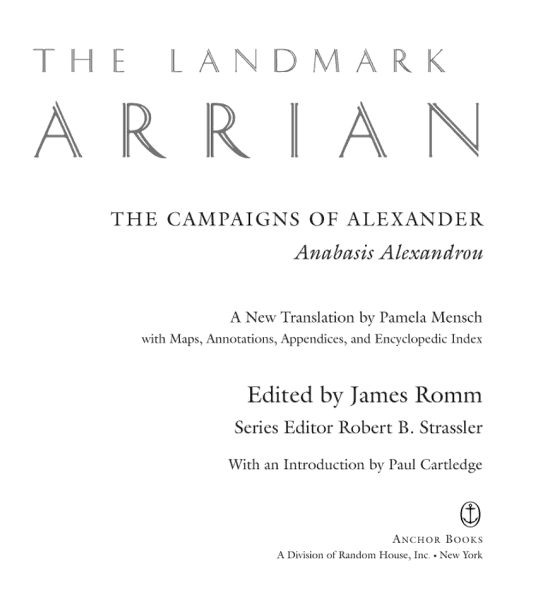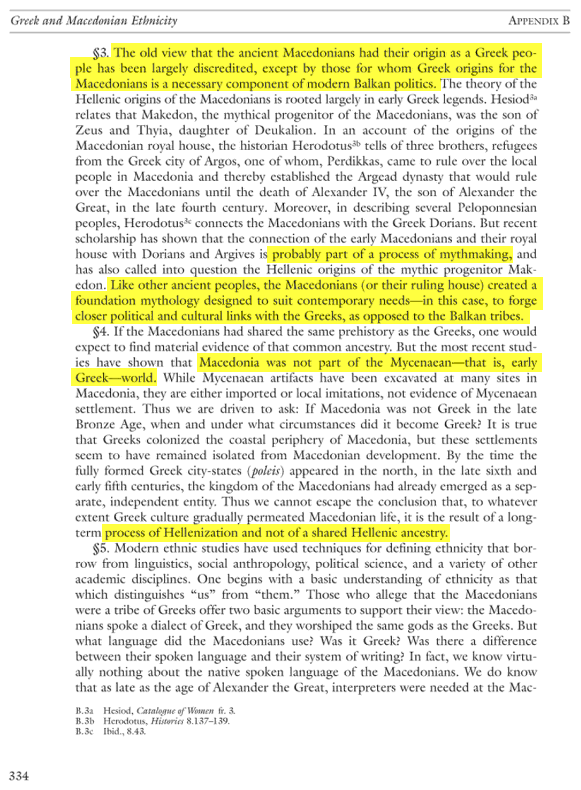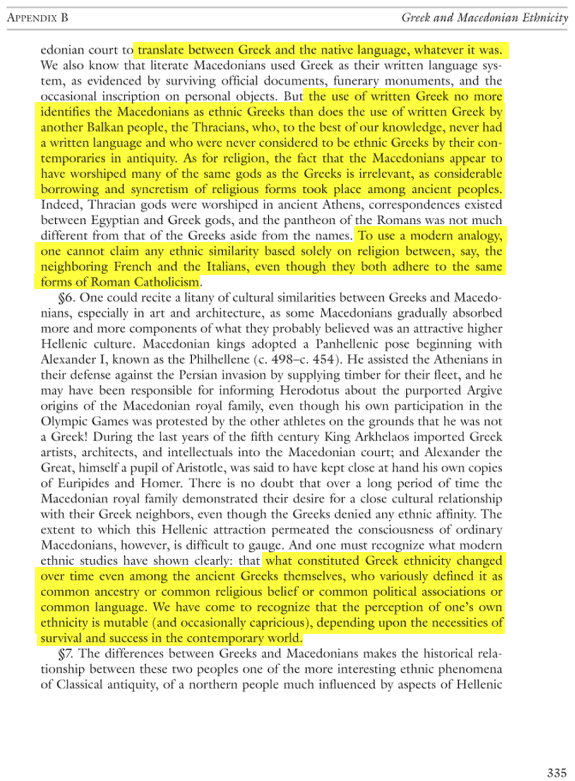Hello, I come before you people today with a question.
What makes you think that you know better than professional historians?
I'm not talking about unheard of Greek historians but neutral historians from the biggest universities in the world who unanimously agree that the Ancient Macedonians were Greek.
Examples:
I personally wrote my dissertation on Alexander at King's College London and had to read around 25 books on him. All of these books agreed that the Macedonians were Greek. My lecturer even said it on the first day and said to ignore anything that said otherwise as nationalist propaganda.
I'm just curious and am hoping for a civilised discussion. I honestly don't mean to offend anyone. Why do you believe that historians have these views if they are not true?
What makes you think that you know better than professional historians?
I'm not talking about unheard of Greek historians but neutral historians from the biggest universities in the world who unanimously agree that the Ancient Macedonians were Greek.
Examples:
I personally wrote my dissertation on Alexander at King's College London and had to read around 25 books on him. All of these books agreed that the Macedonians were Greek. My lecturer even said it on the first day and said to ignore anything that said otherwise as nationalist propaganda.
I'm just curious and am hoping for a civilised discussion. I honestly don't mean to offend anyone. Why do you believe that historians have these views if they are not true?


 Not this again… the repeated reliance upon Greeks on this type of argument is getting to be rather pathetic. You know, if you go back 20 years or so, the majority of astronomers, academics, universities, museums, encyclopaedia’s and books in general around the world would have emphatically stated that our solar system consisted of nine planets. Today they all state that our solar system only consists of eight planets, and guess what, it’s not because one of them disappeared or blew up in that time frame. What does that tell you about all those experts, institutions and books of 20 years ago?
Not this again… the repeated reliance upon Greeks on this type of argument is getting to be rather pathetic. You know, if you go back 20 years or so, the majority of astronomers, academics, universities, museums, encyclopaedia’s and books in general around the world would have emphatically stated that our solar system consisted of nine planets. Today they all state that our solar system only consists of eight planets, and guess what, it’s not because one of them disappeared or blew up in that time frame. What does that tell you about all those experts, institutions and books of 20 years ago?



Comment